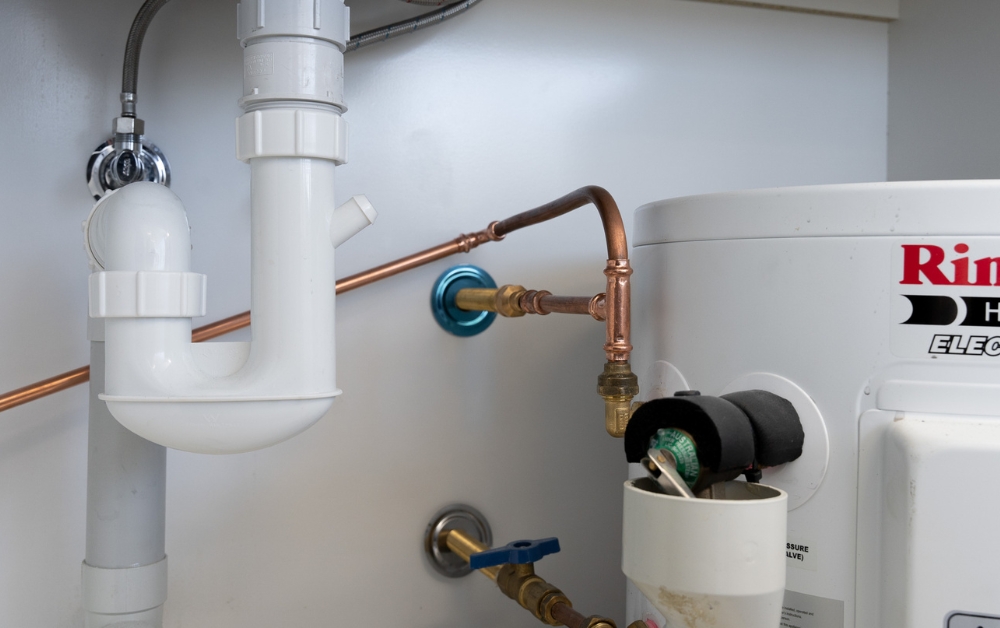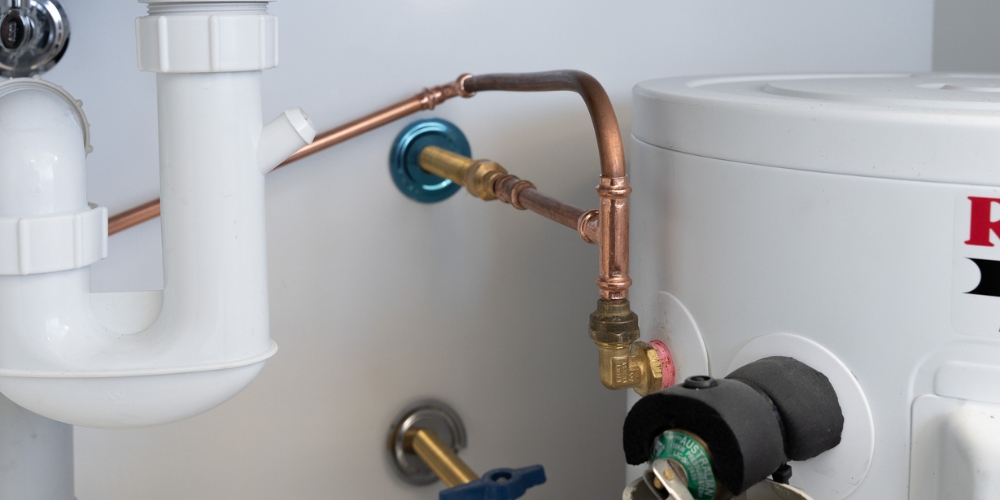
Cloudy Hot Water? Fix It Fast with These DIY Tricks
Have you ever turned on the tap for a warm shower only to be greeted by cloudy water? We signed up for something else. Hot or cold, water should always be crystal clear. So, what’s causing the cloudy surprise?
Seeing your water come out cloudy, even hot, is a cause for concern. For those who didn’t know, water coming from your water system should always be clear, whether hot or cold.
So, what causes the water to come out cloudy?
Let’s find out!

7 Reasons Your Hot Water is Cloudy
Reason #1: Sediment Buildup
Minerals and debris may accumulate at the bottom of your water heater tank over time. When you turn on the hot water, this sediment buildup may give the illusion of being hazy. Regularly cleansing your water heater can control the sediment buildup and maintain clear, running water.
Reason #2: Mineral Deposits
Hard water can cause deposits in your plumbing works because it is high in minerals like calcium and magnesium. Your hot water may become hazy due to these deposits. Installing a water softener is a good long-term strategy to keep water clear and prevent mineral accumulation.
Reason #3: Air Bubbles
Air can get trapped in the water after maintenance or due to variations in water pressure, making cloudiness appear. Clarity is restored after running the hot water for a few minutes because the trapped air is released.
Reason #4: Temperature Fluctuations
Cloudy water may arise from situations caused by frequent temperature adjustments made to your water heater. This problem is usually fixed by stabilising the water heater at a constant temperature. Here, patience is really helpful!
Reason #5: Water Heater Anode Rod
Your water heater’s sacrificial anode rod is made to resist corrosion. It may break down with time, discharging particles into the water and producing cloudiness. This can be avoided, and your water heater’s lifespan can be increased by routinely inspecting it and replacing the anode rod as needed.
Reason #6: Bacterial Growth
Warm water conditions might be ideal for bacteria growth, which causes cloudiness. Frequent maintenance helps control bacterial growth and ensures water remains safe and clear. This includes routinely cleaning and sanitising your water heater.
Reason #7: Water Quality Issues
Sometimes, changes in municipal water quality can impact your home’s water. Installing a water filter can address issues with external factors affecting water clarity, providing a simple yet effective solution to improve overall water quality.
Is Cloudy Hot Water Safe to Drink?
These are the most common questions we have received from our clients in Melbourne’s plumbing services over the past 20 years. When it comes to cloudy, hot water, the primary concern for many is its safety for consumption. In general, cloudy, hot water is usually safe to drink. The cloudiness often results from harmless factors such as tiny air bubbles or minerals in the water.
Our extensive experience in Melbourne’s plumbing industry has shown that common causes of cloudy hot water, like air bubbles or mineral deposits, typically do not pose health risks. However, it’s crucial to consider the specific cause of the cloudiness to ensure it doesn’t indicate an underlying issue that may affect water quality.
How To Fix A Cloudy Water
If you’ve been turning on the tap and seeing less-than-clear water, don’t worry; we’ve got some DIY solutions to bring back that crystal-clear flow.
Flush Your Water Heater
Finding the main water valve might sound like a big deal, but it’s usually near where the water comes into your house. Once you find it, turn it off. This critical step is foundational in minimising the extent of the plumbing emergency.
Install a Water Softener
Installing a water softener could be a good idea if the minerals in your hard water are causing clouding. These gadgets are incredibly effective at preventing mineral deposits and guaranteeing that your water remains pure and uncontaminated.
Bleed Air from Pipes
One possible cause of murky water is air bubbles. Bleeding the air from your pipes can be helpful if you’ve recently had plumbing work done or noticed fluctuations in your water pressure. To clean the air, turn on the impacted taps and leave them running for a few minutes.
Stabilise Water Heater Temperature
Cloudiness may result from temperature fluctuations in water heaters. After adjusting the temperature to a constant setting, give your water heater some time to stabilise. This small change often fixes the problem.
Check and Replace the Anode Rod
With time, the water heater’s sacrificial anode rod may degrade and release particles into the water. Check it frequently, and replace it if it’s corroded. You can maintain the clarity of your water by doing this little maintenance task.
Disinfect Your Water Heater
Another reason for cloudiness could be bacterial growth inside the water heater. Using a hydrogen peroxide solution to disinfect the tank can aid in removing microorganisms. Observe safety precautions and make sure you completely flush the tank afterwards.
Put in a Water Filter
Installing a water filter can be an easy remedy if the quality of your water has changed. It provides you with clean water for all your needs by removing contaminants and improving the general quality of the water.
Frequently Asked Questions
Although hazy water alone might not harm appliances, certain elements that cause haziness—such as sediment or mineral deposits—may impact how well water heaters function over time. All negative effects can be avoided with routine maintenance.
Water quality can be impacted by the kind of plumbing material used. Cloudiness may result from dirt or rust particles introduced by older pipes. If you have any worries about your plumbing system, consider speaking with a plumber.
Abrupt fluctuations in temperature may cause cloudiness. Clear water can be maintained by keeping the water heater at a steady temperature and letting it stabilise.
Even if the weather may not directly cause cloudiness, outside variables like rainfall might impact the water quality. Monitoring the water quality during particular weather events is a good idea.
Conclusion
When your hot water appears cloudy, it’s like a mystery in your plumbing. No worries, though – many times, it’s a fixable puzzle. Remember, regular checks and maintenance keep your water clear and flowing smoothly.
If the cloudiness persists, don’t hesitate to contact the plumbing pros. They’ve got the expertise to uncover and solve the mystery. Clarity in hot water is not just a comfort; it’s a sign of a healthy plumbing system. So, keep an eye on your water, don’t let cloudy surprises linger, and if you ever need a hand, expert help is just a call away.








